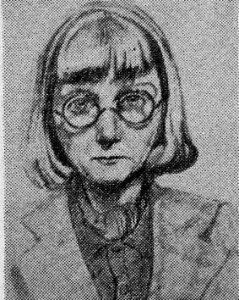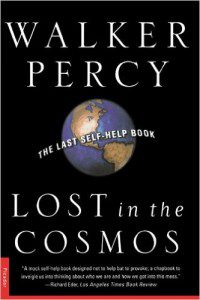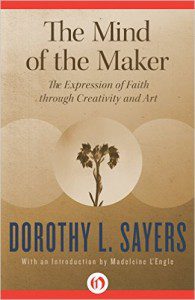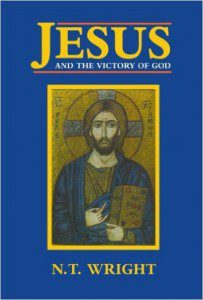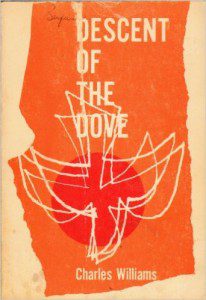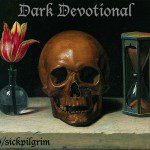In case you haven’t noticed, we like to read around these parts. Sharing the books we love (and love to hate) with you will be a regular feature here at the blog. But there are a few books in particular that inspired the creation and mission of Sick Pilgrim.
Uncle Jonathan’s Top Five Books for Sick Pilgrims
Lost in the Cosmos by Walker Percy
Walker Percy is one of my favorite writers and Lost in the Cosmos demonstrates why. To me, it’s the summit of his brilliance and sharp humor and an unflinching critique of the modern world. Percy knew we’d become spirit beggars who don’t know where go for our spiritual food. This is a must read book for Sick Pilgrims everywhere. It’s a bracing diagnosis of the soul.
“Why is it that the look of another person looking at you is different from everything else in the Cosmos? That is to say, looking at lions or tigers or Saturn or the Ring Nebula or at an owl or at another person from the side is one thing, but finding yourself looking in the eyes of another person looking at you is something else. And why is it that one can look at a lion or a planet or an owl or at someone’s finger as long as one pleases, but looking into the eyes of another person is, if prolonged past a second, a perilous affair?”
For the Life of the World by Alexander Schmemann
In my former life as a Presbyterian minister, I was campus minister to atheists at THE Ohio State University. During that time, I found myself reading more and more Catholic/Orthodox theologians. For the Life of the World began my journey into the Catholic Church. It helped me see the world as a sacrament and to reject my idea of faith as being merely “spiritual.”
“Humans stand at the center of the world and unifies it in his act of blessing God, of both receiving the world from God and offering it to God-and by fulfilling the world with this Eucharist, he transforms his life, the one that he receives from the world, into life in God, into communion with Him. The world was created as ‘the matter,’ the material of one all-embracing Eucharist, and man was created as the priest of this cosmic sacrament.”
The Mind of the Maker by Dorothy Sayers
Sayers’s book on what it means to be a Christian artist is simply the best. She argues that artists are reflections of the Trinity, and we reflect the Godhead when we do our art. Basically, she takes Tolkien’s idea of sub-creation and expands it. No one can say they’ve seriously reflected on the idea of being a Christian and an artist unless they’ve wrestled with Sayers. Please pick this up immediately.
“The disastrous and widening cleavage between the Church and the Arts on one hand and between the State and the Arts on the other leaves the common man with the impression that the artist is something of little account, either in this world or the next; and this has a bad effect on the artist, since it has left him in curious spiritual isolation. Yet, with all her faults, she remains the person who can throw light on that ‘creative attitude of life’ to which bewildered leaders of thought are now belatedly exhorting a no less bewildered humanity.”
Jesus and the Victory of God By N.T. Wright
A 662-page scholarly work on the life and message of Jesus might seem like an odd choice for this list. But for a Sick Pilgrim looking to discover Jesus divorced from “American Jesus,” this book is essential. I read it in seminary, and it transformed by life. Literally. We Sick Pilgrims have a mission in this world that’s bound up in our union with Christ. Plus, as an added bonus, N.T. Wright is the coolest theologian around. Do you know any others who play Bob Dylan on the guitar before they talk about Jesus?
“His kingdom announcement, like all truly Jewish kingdom announcements, came as the message of the one true God, the God of Israel, in opposition to pagan power, pagan gods, and pagan politics. But, unlike the other kingdom-announcers of his time with Judas the Galilean to Simeon ben Kosiba, Jesus declared that the way of the Kingdom was the way of peace, of love, the way of the Cross. Fighting the battle of the kingdom with the enemy’s weapons meant that one had already lost it in principle, and would soon lose it, and lose it terribly, in practice.”
Descent of the Dove by Charles Williams
It’s a national past time to rag on the church. I’ve done it myself. But Inkling Charles Williams made me reconsider that attitude. In a loving, moving, mystical, weird and no-holds-barred short history of the church, he demonstrates why the church is such a beautiful mess. And, even more, why it’s a home for Sick Pilgrims everywhere.
“Yet in some sense this experiment in polarization corresponded to the first knowledge of the Church; the grand experience of, and faith in, an otherness and a union, a life from others or from another. The lovers of that period–or some of them–realized the impact of Love, and desired to act and grow from it. It was the beginning, and they conceived it so. The point of its discovery was the point to be at once practiced and transformed. Christianity is, always, the redemption of a point, of one particular point. “Now is the accepted time; now is the day of salvation.” In this sense there is nothing but now; there is no duration. We have nothing to do with duration, and yet (being mortal) we have to do with nothing but duration; between those contrasts also all the history and doctrine of Christendom lies.”
Next week Aunt Jess will share her literary inspirations. Hint: She brings this pic when she gets her haircut.
